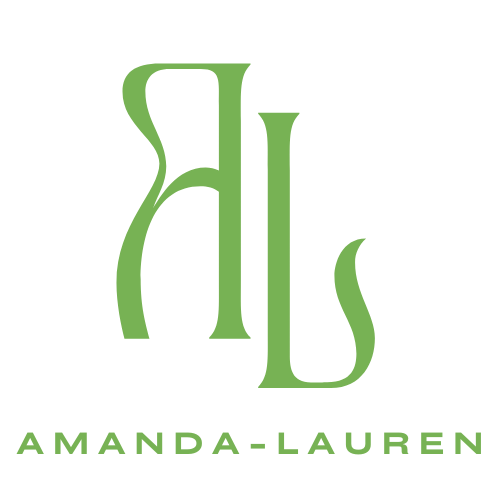Table of Contents
ToggleIn a world overflowing with beauty products, standing out is no small feat. With shelves brimming with potions and lotions, the right name can make all the difference. After all, who wouldn’t be tempted by a product called “Glimmer Glee” or “Radiance Remedy”? A catchy name not only sparks curiosity but also creates a lasting impression, turning casual browsers into loyal customers.
Importance Of A Great Product Name
A great product name plays a crucial role in the beauty industry. Creativity captivates attention, encouraging potential customers to explore further. Effective names evoke emotions and resonate with target audiences, fostering brand loyalty. Standout names not only differentiate products from competitors but also improve recall value.
Distinctive names can influence purchasing decisions significantly. Statistics indicate that 60% of consumers buy a product due to its name alone. Memorable names create an instant connection, enhancing the perceived value of the product. Aligning the name with the product’s purpose can strengthen this bond, making it easier for customers to associate the product with their needs.
Market research reveals that consumers often prefer products with clear and descriptive names over vague options. Catchy names generate excitement and curiosity, prompting shoppers to engage more deeply. Names that are easy to pronounce and spell further improve discoverability, making them shareable through word of mouth.
In addition, a great product name reflects the brand’s identity and core values. It conveys the essence of the product, establishing a narrative that resonates with consumers. Overall, investing effort into naming a beauty product pays dividends in branding and marketing effectiveness.
Types Of Beauty Products
Beauty products encompass a wide range of items designed to enhance personal appearance and support self-care routines. Understanding various types helps in both marketing and product development.
Skincare Products
Skincare products include cleansers, moisturizers, serums, and treatments. Each category focuses on specific skin concerns, like hydration or acne treatment. Innovative ingredients such as hyaluronic acid and retinol amplify product effectiveness. Brands often market anti-aging or brightening formulations to attract consumers. Essential oils in skincare cater to those seeking natural solutions, while eco-friendly packaging appeals to environmentally-conscious buyers. Popular trends feature multifunctional products that combine several benefits in one formula, responding to the demand for efficiency in beauty routines.
Makeup Products
Makeup products range from foundations and concealers to lipsticks and eyeshadows. Diverse shades and formulations target various skin tones and preferences. Popular items, like waterproof mascara and long-wear lip color, enhance durability for wear throughout the day. Brands capitalize on limited edition releases, generating excitement and urgency among buyers. Unique packaging aesthetics often draw customers in, establishing a brand’s identity. Seasonal trends also encourage new product launches, helping brands stay relevant in a highly competitive market.
Hair Care Products
Hair care products consist of shampoos, conditioners, styling aids, and treatments. Each item addresses different hair types and concerns, such as dryness or frizz control. Ingredients like argan oil and keratin support hair health and enhance appearance. Brands often market sulfate-free products, catering to consumers seeking gentler options. Effective advertising highlights product benefits, including volume or shine enhancement. Targeted men’s and women’s lines further personalize offerings and meet specific consumer needs in the hair care sector.
Creative Naming Strategies
Creative naming strategies enhance the appeal of beauty products. Emphasizing uniqueness engages consumers and builds brand affinity.
Combining Words
Combining relevant words creates distinctive product names. This method allows brands to evoke specific attributes and feelings. For instance, “LuxeGlow” suggests luxury and radiance. Using this technique, beauty brands can effectively communicate product benefits. Each combination can inspire imagery, making it easier for consumers to remember. Efforts should be made to ensure clarity and connection to the product category, so names resonate. Names that blend compelling words not only stand out but also encapsulate brand essence, improving recall.
Using Foreign Languages
Using foreign languages can add sophistication and intrigue to beauty product names. Words from languages like French or Italian often connote elegance or quality. For example, “Bellezza” means beauty in Italian and can suggest an exotic allure. Incorporating foreign terms can appeal to a specific target demographic seeking authenticity. Consideration should be given to pronunciation and cultural significance to avoid misunderstandings. Authentic names create deeper connections with consumers, enhancing brand perception. Engaging a global audience through this strategy can differentiate products in a competitive market.
Tips For Naming Your Beauty Brand
Naming a beauty brand requires strategic thinking and creativity. Ensuring the name resonates with potential customers enhances its appeal.
Consider Your Target Audience
Identify the demographics that resonate most with the products. Age, gender, and interests significantly influence naming choices. Younger consumers often favor trendy or playful names, while mature audiences may prefer sophistication. Conduct market research to gather insights about consumer preferences. Understanding these factors allows brands to create names that evoke familiarity and connection. Tailoring names to align with audience expectations increases the likelihood of engagement and loyalty.
Reflect Your Brand Values
A product name should encapsulate the brand’s core values. Authenticity and transparency attract consumers who prioritize ethical standards. Aligning the name with sustainable or cruelty-free practices reinforces these values. Customers often feel a stronger connection when names reflect a brand’s mission. Use words that signify quality, innovation, or eco-friendliness. Effective names create a narrative that communicates the brand’s essence. Keeping brand values at the forefront fosters trust and credibility, further encouraging purchasing decisions.
Crafting the perfect name for beauty products is a vital step in capturing consumer interest and fostering brand loyalty. A well-chosen name not only differentiates a product from competitors but also creates an emotional connection with the target audience. By employing creative naming strategies and understanding market dynamics, brands can ensure their products resonate deeply with consumers.
Investing time and effort into naming can lead to significant returns in terms of brand recognition and sales. When names reflect a product’s benefits and align with the brand’s values, they enhance customer trust and engagement. Ultimately, a memorable name can be the key to transforming casual shoppers into lifelong customers in the competitive beauty industry.








